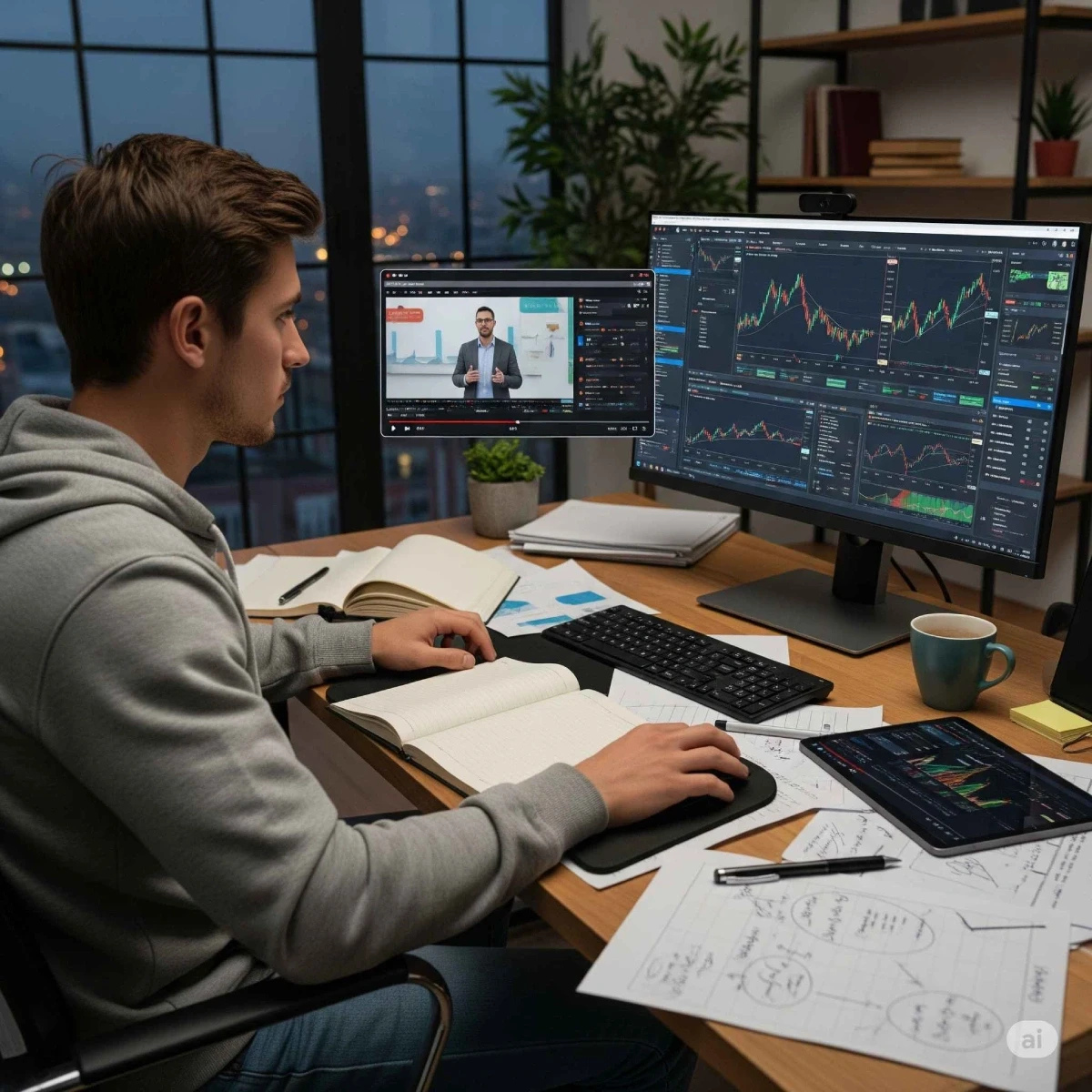 trading psychology, why traders lose money, psychology of trading, emotional trading mistakes, trading discipline, risk management in trading, trading psychology strategies, mental edge in trading, trading psychology blog
trading psychology, why traders lose money, psychology of trading, emotional trading mistakes, trading discipline, risk management in trading, trading psychology strategies, mental edge in trading, trading psychology blog
 0 comment
0 comment
 04 Aug, 2025
04 Aug, 2025

In financial markets, the cold reality is that most traders fail. Despite having access to powerful tools, advanced charting platforms, and endless strategies, consistent profitability remains elusive for the majority.
But the root cause isn’t lack of information or technical skills.
It’s psychological.
Understanding the mental and emotional dynamics of trading is not just helpful—it’s essential. In this article, we’ll uncover the psychological traps that lead most traders to failure, and how mastering your mindset can be your greatest competitive advantage.
Fear, greed, impatience, and regret often override rational analysis. Many traders abandon their strategies the moment emotions run high—cutting winners short or holding onto losers far too long.
Successful trading is built on repeatable, rule-based execution. Without discipline, even the most robust strategy becomes useless. Impulsive entries, moving stop-losses, or revenge trading all point to a lack of emotional regulation.
The fear of missing out (FOMO) pushes traders into late entries, while overconfidence after a streak of wins can lead to excessive risk-taking. Both are driven by emotion, not data.
Traders often focus on maximizing returns while ignoring capital preservation. But risk management—position sizing, stop-loss placement, and risk/reward ratios—is the backbone of long-term survival.
Few traders invest in building a mental playbook. They treat trading as a technical challenge, not a psychological one. This leads to inconsistency and erratic decision-making under pressure.
While most market participants compete with strategies, indicators, and analysis, elite traders compete with their mindset.
Here’s how psychology transforms performance:
A trading plan eliminates impulsive behavior. Define:
Market entry/exit conditions
Risk per trade
Maximum daily losses
Trade review process
This structure allows you to act with clarity, even in volatile conditions.
Maintaining a trading journal is non-negotiable. Record:
Every trade decision
Emotional state at the time
Outcome vs. plan
Over time, you’ll uncover psychological patterns that silently impact your results—and learn how to control them.
Great traders don’t get emotionally attached to wins or losses.
Their mindset is:
“This is one of thousands of trades. I focus on process, not outcome.”
By maintaining neutrality, they avoid overreacting to short-term fluctuations and stay consistent with their edge.
The market is inherently uncertain. You cannot control outcomes—but you can control your response. Accepting that losses are part of the game empowers you to move on quickly, without emotional baggage clouding future trades.
Top traders treat their minds like elite athletes treat their bodies.
They implement:
Meditation and breathwork for emotional regulation
Scheduled breaks to avoid burnout
Physical fitness to improve focus and endurance
The goal is not to eliminate emotion—but to manage it effectively.
Consistently profitable traders exhibit psychological traits that separate them from the rest:
Discipline over excitement
Process over outcome
Patience over impulse
Risk control over reward chasing
They operate with clarity under pressure—and that is the ultimate edge.
“Amateurs react. Professionals execute.”
Technical skills may open the door, but it's psychology that keeps you in the game.
Until you develop emotional discipline, even the best strategy will fail you.
So if you're wondering why results aren’t consistent…
Stop looking outward—and start looking inward.
Because in trading, your greatest risk is not the market—
it’s your own mind.
0 comment